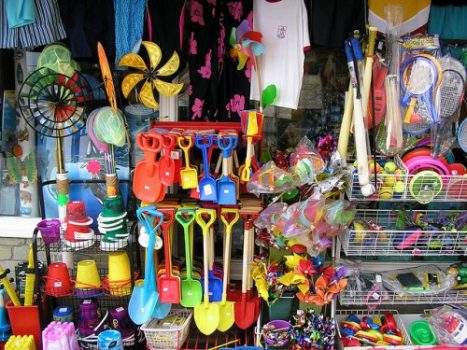As we rapidly approach the holiday season, it seemed to be a good time to bring up some of the retailers favorite tricks that are used to get you to spend more. Retailers are professionals at selling and they have spent millions in research to determine how to sell as much as possible. Here are a few tricks and techniques to watch out for this holiday season:

1. Limited-time-only bargains.
Regret is one of our most disliked feelings, and people naturally do what they can to avoid feeling regret. Marketers know this and use it to their advantage with limited-time offers and bargains. By making you feel that you have to act now or risk losing out on a great sale or product, retailers force you into a split second decision that often results in a purchase.
Another way this fear is used is when retailers purposely limit quantities of merchandise. Once a shopper returns to buy something, only to find out that item is no longer in stock, that person will be less likely to pass up on something he or she wants in the future.
The reality is that, in many cases, if you’d paid attention to the price of an item for a while because it was something you actually wanted, you’ll notice that the savings probably isn’t what’s being advertised. Many retailers will jack up the prices before the holidays, then discount a couple of weeks beforehand so they can claim the discounted price.
You might end up saving a couple of dollars here and there, but don’t be fooled by the “promise” of special deals for something you didn’t even know you wanted until that moment. Go home, do some online research, and see if there’s a better deal elsewhere.
2. Buying in bulk is cheap, right?
This is one that I have found Walmart and BJ’s Warehouse to be especially good at taking advantage of. We’ve been trained to believe that when we buy items in bulk, we pay less per item than buying in smaller quantities.
Retailers take advantage of this in a couple of ways that you need to look out for. One is that the larger size product is not always cheaper on a per unit basis. This often happens when the smaller size is on sale, but the larger is not. Be sure to always check the actual per unit cost of the product is to make sure you are really saving, which is almost always indicated on the tag showing the price (just below, in smaller font).
The other way this often works against us is that most of us hate to pass up what we view as a good deal. Think of McDonald’s when they brought out the super-size option concerning french fries. Getting all those extra fries seems like a great deal.
There’s two things to think about here. One, you might get halfway through the larger container of fries and realize that you can’t eat anymore; there’s no savings there. Before buying the larger size of any item to save money, make sure that you will actually use it. Two, when it comes to something that offers three sizes, the middle size usually isn’t the best buy for your money. Always check the prices and calculate which one is your best cost option.
3. Make sure the purchase can’t wait until later.
It’s rare that you come across an amazing deal that you’ll never see again. In fact, quite the opposite is usually true. When was the last time that you went to the craft store and they didn’t have a 1/2 off sale? It seems that some items are on sale more often than not.
Before buying a sale item because it seems like a good value, make sure it is something that you need and will use in the near future. If you already have 3 large jugs of laundry detergent, don’t buy another because it’s on sale.
Truthfully, there are some times when you’ll come across something that absolutely looks like a good deal. The cost of TVs that offer 65″ screens for less than $400 definitely looks like a good deal. However, what you need to be careful of is whether it’s a brand name you trust, because when it comes to technology just because something looks like a money saver up from doesn’t mean you’re going to enjoy what you’re getting once you get home.
Once again, it’s probably best to wait at least until you get home, search for reviews of that particular item online, and decide at that point whether or not your good money deal might be a bust. This goes for all technology, because not only do you want a good price, but you probably want something that will last for a while and give you a great experience.
Be smart with your money and only buy items that you actually need, not items that you might need a month down the road… or possibly never.